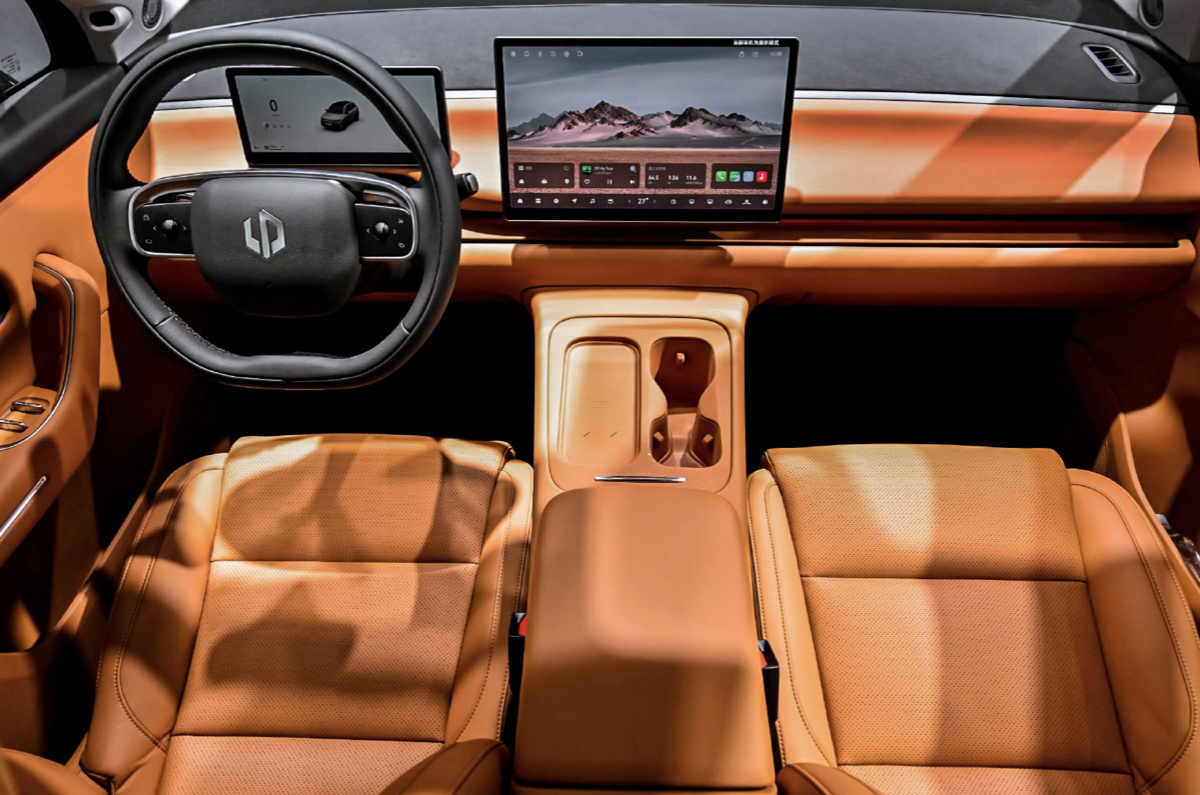A feasibility study is on to see if Stellantis can bring the EV brand, Leapmotor, to India to rival the Tata Tiago EV and Nexon EV.
Amid the rush of global electric vehicle brands in the Indian market, Stellantis, the fourth largest automotive conglomerate in the world, is exploring the possibility of introducing yet another nameplate from its stable of 14 brands in the Indian market. Leapmotor, a Chinese EV brand in which Stellantis picked up a 20 percent strategic stake in October 2023 for Euro 1.5 billion in (about Rs 13,500 crore) is being considered for an India entry.
The deal also outlined the formation of Leapmotor International, a 51:49 Stellantis-led joint venture that has exclusive rights for the export, sale and manufacturing of Leapmotor products outside Greater China.
The entry into India is part of Leapmotor’s internationalisation strategy, which is led by Stellantis. The company is conducting a feasibility study on introducing Leapmotor in India which could be Stellantis fourth brand in the country after Citroen, Jeep and Maserati.
Sources say that say Stellantis is exploring a portfolio of vehicles from Leapmotor for the Indian market that will range from sub-Rs 10 lakh to Rs 40 lakh price points, with products ranging from a mini hatchback EV to take on the Tata Tiago and Nexon EVs, as well as Maruti Suzuki’s upcoming eVX.
The company is studying the possibility of importing them as CKD units and assembling them at its factory in Ranjangoan on the outskirts of Pune to begin with, before localising them – if the project passes the commercial feasibility.
If all goes well, the plan is to introduce the brand in the Indian market in less than a years’ time. An email sent to Stellantis India did not elicit any response till the time of publishing. This move comes at a when Vietnamese EV specialist VinFast has announced its India gameplan and the likes of Fisker and Tesla already have the country on their radar for a market entry.
The introduction of Leapmotor is likely to happen from the existing dealer network of Stellantis India – which has had suboptimal volumes so far. The addition of another brand will increase showroom footfalls, which dealerships desperately need.
Billy Hayes, Stellantis senior VP India and Asia Pacific, had told Autocar India in an earlier interview that the company is exploring the addition of other brands in the country. The partnership between Stellantis and Leapmotor was aimed to further boost Leapmotor sales in China, the biggest market in the world, while leveraging Stellantis’ established global commercial presence to significantly accelerate Leapmotor sales outside China, starting with Europe.
Stellantis intends to leverage Leapmotor’s highly cost-efficient EV ecosystem in China to help meet core ‘Dare Forward 2030’ electrification targets. The joint-venture expects to begin exports in the second half of 2024.
The two companies consider Leapmotor EV product offerings to be complementary to Stellantis’ current technology and portfolio of iconic brands, and will bring more affordable mobility solutions to global customers. Stellantis will have two seats on Leapmotor’s Board of Directors and will appoint the CEO of the Leapmotor International joint venture, as per the company. A recent Reuters article stated that Stellantis is considering building low-cost EVs in Italy as part of its agreement with Leapmotor. India could be another potential manufacturing base, sources tell our sister publication Autocar Professional.
“As consolidation unfolds among the capable electric vehicles start-ups in China, it becomes increasingly apparent that a handful of efficient and agile new generation EV players, like Leapmotor, will come to dominate the mainstream segments in China,” Stellantis CEO Carlos Tavares had said in October while announcing the venture.
“We feel it’s the perfect time to take a leading role in supporting the global expansion plans of Leapmotor, one of the most impressive new EV players who has a similar tech-first, entrepreneurial mindset to ours. Through this strategic investment, we can address a white space in our business model and benefit from Leapmotor’s competitiveness both in China and abroad,” he added.
Interestingly, the likes of JSW and Mahindra have, in the past, had a dialogue with Leapmotor to licence or acquire their technology, but the conversations did not fructify.
The top management of Leapmotor had confirmed to Autocar Professional at the Munich Mobility Show in 2023 that the company is keenly watching the Indian market and is keen to partner with local players, but it had not finalised its India plans yet.
Also see:
Citroen C5 Aircross being unofficially assembled at Stellantis’ Russia plant
Stellantis reveals new STLA large EV platform
Stellantis to invest additional Rs 2,000 crore into Citroen India

























